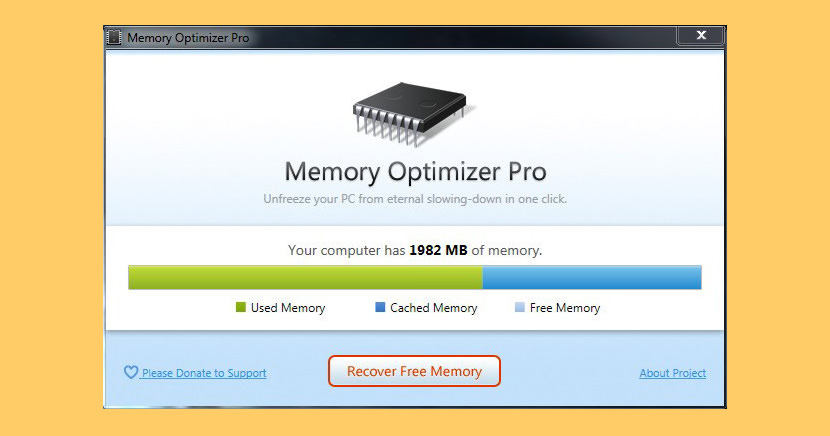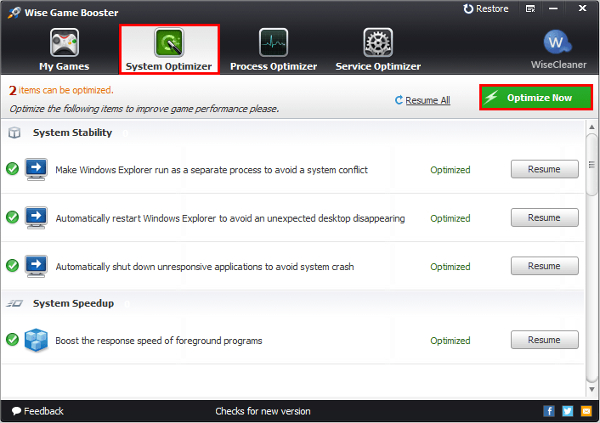
- Best ram optimizer for windows 10 install#
- Best ram optimizer for windows 10 update#
- Best ram optimizer for windows 10 Pc#
- Best ram optimizer for windows 10 free#
- Best ram optimizer for windows 10 mac#
Once the task manager is open, click on the “Processes” tab and the “Memory” heading.Press Ctrl+Shift+Esc or Ctrl+Alt+Del or click start and type “task manager” in the search engine.To access the task manager and check the status of your RAM, follow the steps below: This tool shows exactly which programs and processes are consuming the most RAM. Windows Task Manager makes finding the source of RAM exhaustion simple.
Best ram optimizer for windows 10 free#
Here is a compilation of 6 ways to free up RAM memory on a Windows 11 device: Task Manager If the above tips have yet to help to free up RAM and make your device recover or increase its operating speed, it’s time to make changes a little more technical. A simple way to free up RAM is to prevent extensions that you do not usually use from consuming RAM.
Best ram optimizer for windows 10 install#
It is common to install extensions occasionally or to try something new and then forget to delete them. But it is one of the most frequent causes of RAM consumption.Įxtensions are loaded into memory when the browser is opened and store many resources over time. The extensions that browsers allow you to install can be a handy tool to increase productivity and efficiency in our work.
Best ram optimizer for windows 10 update#
Updates are based on fixing bugs and problems from previous versions, so it is expected that if an application has a memory leak, the update will include a fix for this problem.Īlso, the latest updates usually include optimizations and improvements so that the software can use less RAM. These leaks, over time, will use an increasing amount of RAM space and cause a lack of resources for the other applications on your system. When a program does not return RAM to the pool once it has finished using those resources, it is called a memory leak. Secondly, updates can help you reduce RAM waste. Updating applications is essential, firstly, for security reasons.
Best ram optimizer for windows 10 Pc#
If you regularly use Google Chrome and your PC is running slow, we recommend trying browsers like Microsoft Edge, Mozilla Firefox, Brave, and Opera. Google Chrome may be one of the favorites and most used by users, but it is one of the most RAM-consuming browsers. However, if you’ve cleared your browser’s cache and still notice that it’s running slowly, it may indicate that you need to try new, more intelligent browsers. We know that habits are hard to change, and we all have a favorite browser. There are many options when choosing a browser, and some browsers are better designed than others to allocate and manage RAM usage. If you have already tried restarting your device, clearing your browser’s cache may be your solution to free up RAM. This helps you browse the Internet quickly, but it can demand a large amount of RAM that might be needed to finish other, more critical tasks. The cache relies heavily on RAM, using short-term memory to reload pages you have recently visited. Processes and programs are running in the background without your knowledge, so restarting the computer will clean up the processes running in the background that could consume your PC’s RAM.įor this reason, restarting your computer is the easiest way to free up RAM storage space without the risk of losing files or documents you are working on. Here is a list of simple steps before taking more aggressive measures to free up space: Restart PCĪs mentioned above, RAM is characterized by storing data temporarily and only for the programs running at the time.
Best ram optimizer for windows 10 mac#
The following tips for freeing up RAM can be used regardless of whether you have a Windows or Mac device.


It manages the data of the running applications, so the more RAM you have, the more applications you can handle simultaneously. It temporarily stores the data of the programs you are currently using.

RAM (Random Access Memory) is the main memory of any device, from computers to cell phones.



 0 kommentar(er)
0 kommentar(er)
